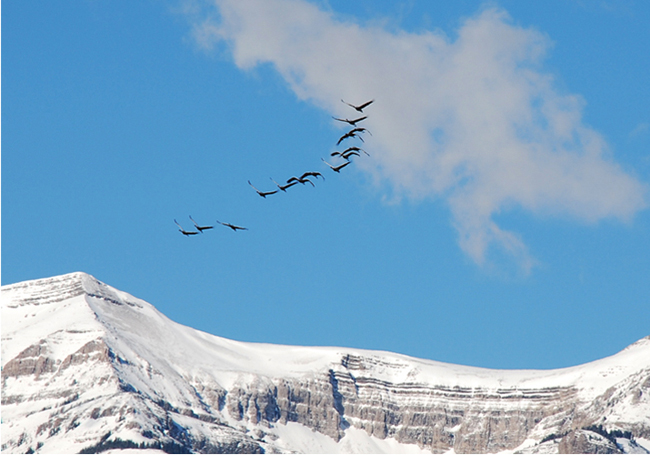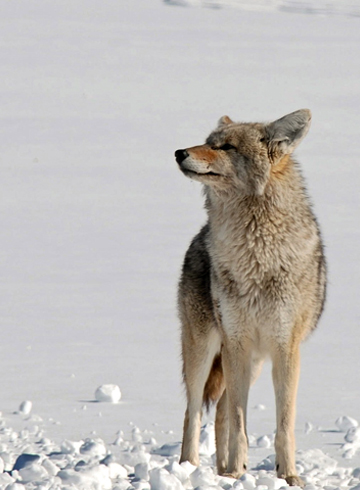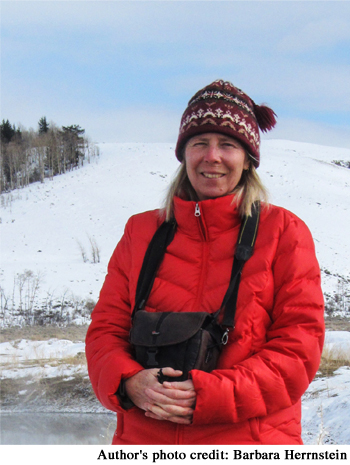Reed grass sloughs, coverts of cottonwood and ash
Buffaloberry embroidering a ditch with threads of crimson fruit:
October spreads its wings, yearning for the sky’s embrace.
Land flattens under cumulus and light,
Blood-red line of sunrise broadens to a ruddy streak.
By noon the wind has turned, strong and from the north.
Primeval music tumbles from the vacant blue
And all at once the sky holds columns of grace,
Dozens of cranes calling as they climb
The invisible staircase of the North Dakota sky.
One, at the far tip of a long vee of birds,
Is white. Its wings ply the air like canvas sails,
Their hems dipped in the blackest ink.
Sunset lingers, empty. The prairie sky was made
For their millions, its silence meant for their cries.
Twilight’s fading violet shrouds loss,
Forgotten pathways of light.
Tomorrow the sunrise will bleed again,
The midday sky will wait
The only way it knows—
Arms open, ardent, filled with light.
 Sandhill cranes in migration, Teton Range, Wyoming
Sandhill cranes in migration, Teton Range, Wyoming
Notes:
This poem was written in response to paintings in the collection of the National Museum of Wildlife Art in Jackson, Wyoming. I was one of two poets who organized a public reading of ekphrasis – poems responding to art – in 2009. In looking at the many pictures displayed in the museum’s gallery, I was drawn to those that felt like eulogies for what was lost and I wrote about the deep grief they brought out in me. This poem was informed not only by a painting by John James Audubon, but by several trips I took with my husband to North Dakota. The last time we went, we saw one whooping crane among hundreds of sandhills, the only wild whooper I have ever seen.
The Hunters
Where will the redtails hunt
A-hover on the summer wind
When all this broken country
Grows cul-de-sacs, not hay?
And where will falcons stoop
Shadows splash on rough breaks
When the rusted scythe teeth
Have cut their final row?
The ribcage of a coyote hangs
On a singing barbed-wire gate
The wind has long since taken
What the coyote might have robbed.
Out here in these clay-hard hills
Real estate is king
Scavenging from dying farms
What sweat could not persuade:
A living from the land.
The hunters are the first to hear
The coyotes and the hawks
Their shadows pass, swift and gone
Like a songbird in the falcon’s eye.
 Coyote pausing to sniff the air
Coyote pausing to sniff the air
Notes:
I wrote this poem many years ago while living in Montana, where a real-estate boom was making quick work of the remaining prairie and farm fields surrounding Bozeman. Witnessing the destruction of a remnant ecosystem broke my heart.
About the Author

Susan Marsh is an award-winning writer living in Jackson, Wyoming. She worked for the U.S. Forest Service for over thirty years. Her poetry and essays have appeared in Orion, North American Review, and Fourth Genre, among others, and numerous anthologies. Her books include Stories of the Wild, The Wild Wyoming Range, War Creek and A Hunger for High Country.
Return to top